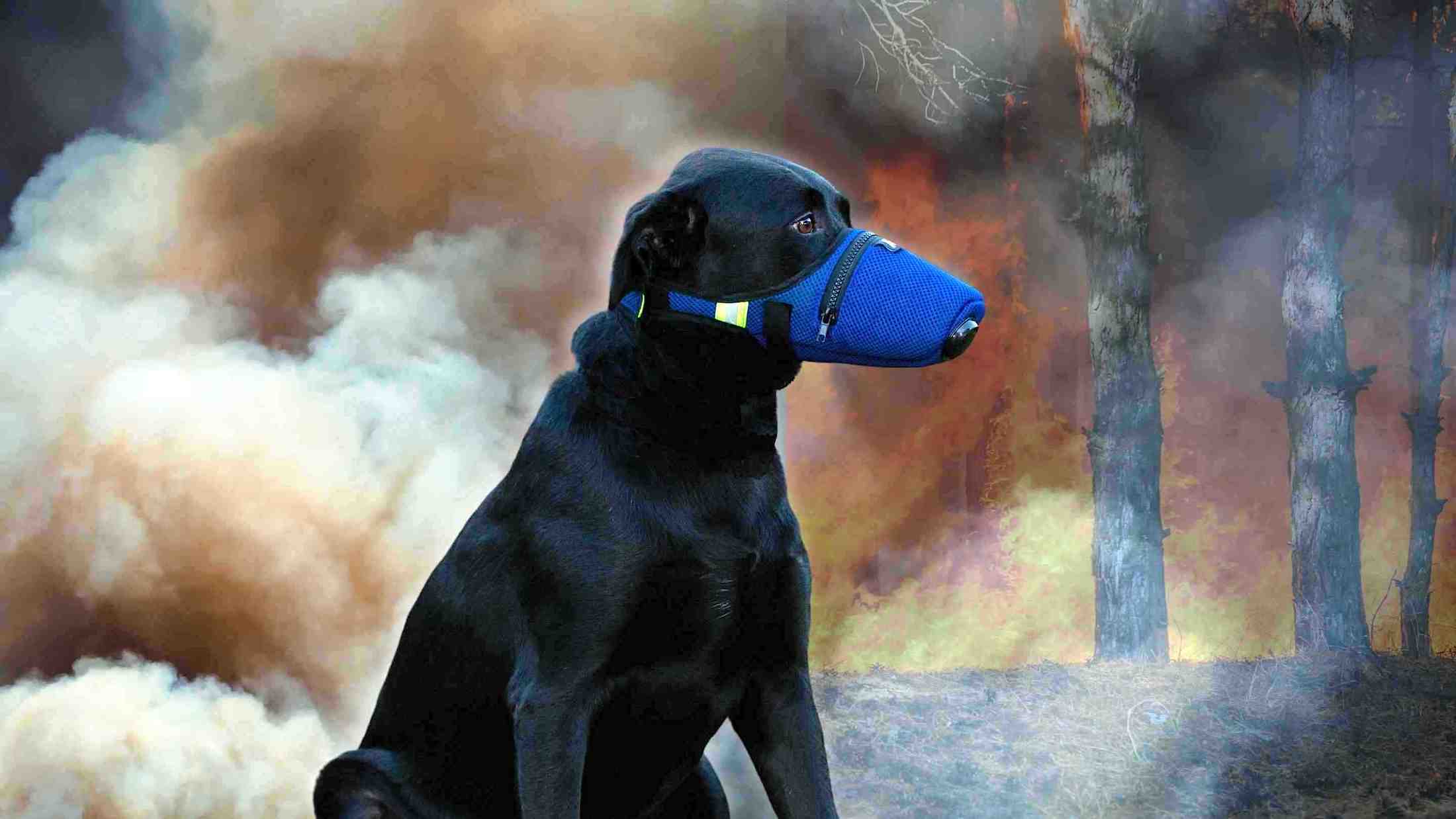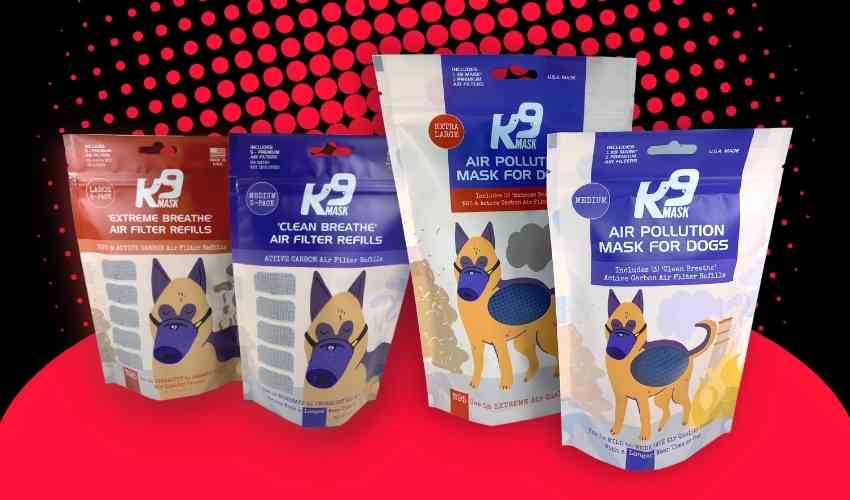Wildfire Smoke in the Pacific Northwest: The 2024 Season So Far
This year has been particularly challenging for residents across Washington, Oregon, and Northern California, with over 1.2 million acres burned in the Pacific Northwest by July 2024. In areas near Spokane and Portland, the Air Quality Index (AQI) hit hazardous levels multiple times, putting everyone’s respiratory health in danger. The Puget Sound Clean Air Agency reported particulate matter (PM2.5) levels that exceeded 300 AQI on some days—well into the "hazardous" zone. And this is where it becomes a significant issue for your pets.How Wildfire Smoke Affects Dogs’ Respiratory Health
Wildfire smoke is made up of fine particulate matter (PM2.5), harmful gases like carbon monoxide, and volatile organic compounds. Dogs, like humans, breathe in these particles, but their shorter noses and proximity to the ground make them more vulnerable to these tiny pollutants. Since they spend much of their time outdoors or close to the floor, they are at higher risk for exposure.

Scientific studies have shown that dogs can develop serious respiratory issues from extended exposure to wildfire smoke. A study from UC Davis found that particulate matter from smoke can inflame the respiratory system of dogs, leading to:
- Increased coughing or gagging
- Labored or heavy breathing
- Eye irritation and discharge
- Fatigue and weakness
- Reduced appetite
Understanding the Signs: Is Your Dog in Trouble?
If you're concerned about how your dog may be reacting to wildfire smoke, watch for these key symptoms:- Persistent coughing, gagging, or sneezing.
- Breathing more rapidly than usual or struggling to catch their breath.
- Discharge from their eyes or nose.
- Fatigue or an unwillingness to exercise or go on walks.
- Anxious behavior or a restless demeanor.
- If your dog is showing any of these signs, especially if the air quality index (AQI) is high, it’s critical to limit their time outdoors and consult with your veterinarian.
Protecting Your Dog During Wildfire Season
Thankfully, there are ways to safeguard your pup from smoke exposure and minimize health risks.Monitor the AQI:
Regularly check the AQI levels in your area through websites like AirNow or apps like AQICN, and keep your dog indoors when levels exceed 100 AQI. Even if it seems clear, harmful particles can linger in the air.Limit Outdoor Activity:
Reduce outdoor playtime and exercise, particularly during peak smoke hours, which tend to be early in the morning or late afternoon when temperatures are cooler but air quality may worsen.Invest in Protective Gear:
Consider outfitting your dog with a K9 Mask dog air filter or other canine-specific respiratory gear that can help filter out harmful particles during short outdoor walks or bathroom breaks.Keep the Air Clean Indoors:
Use HEPA air filters in your home to minimize the infiltration of smoke particles. Ensure that windows and doors are properly sealed during smoke advisories.Hydration is Key:
Ensure your dog is drinking plenty of water, which helps keep their respiratory tract moist and better equipped to filter out harmful particles.When to Seek Veterinary Help
If your dog shows signs of respiratory distress and the air quality has been consistently poor, don't wait—contact your vet immediately. Symptoms like difficulty breathing, extreme lethargy, or a persistent cough can be indicators of serious respiratory issues that require medical attention.

Final Thoughts:
Prioritize Your Dog’s Health Your dog’s health is precious, and just like with human family members, it’s important to take proactive steps to keep them safe during wildfire season. While the wildfires in the Pacific Northwest can feel overwhelming, knowing how to protect your dog from the harmful effects of smoke can go a long way toward ensuring their well-being. Remember to monitor the air quality, limit exposure, and use protective gear when necessary.
If you're looking for ways to enhance your dog's protection against wildfire smoke, explore innovative solutions like the K9 Mask air filter, designed specifically for dogs. By being mindful of these precautions, you can help your dog breathe a little easier—even when the air around you is filled with smoke.
Stay safe, and give your dog an extra hug today!
For more resources and tips on protecting your dog’s health, check out our Summer Wildfires 2024: Risks and Pet Preparedness.














